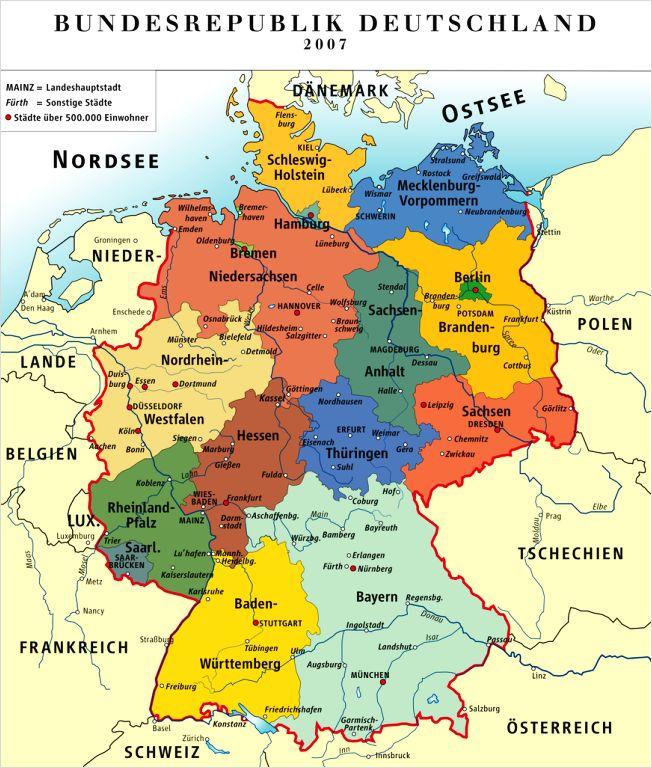In a dramatic shift from its post-World War II defense posture, Germany has announced plans to build the largest military force in Europe. This unexpected development marks a significant realignment in European security strategy, as Berlin seeks to bolster its armed forces amid growing geopolitical tensions. The move comes in response to escalating security challenges on the continent, signaling Germany’s intent to take a more prominent role in regional defense.
Germany’s Strategic Shift Marks a New Era in European Defense
Germany has unveiled an ambitious plan to dramatically expand its military capabilities, signaling a pivot from decades of restrained defense policy. This strategic shift aims to position Germany as the backbone of European security, with investments focusing on cutting-edge technology, increased troop numbers, and advanced armored vehicles. Leading policymakers emphasize that this transformation is in response to shifting geopolitical tensions and the need for Europe to assert greater autonomy in its defense strategy, reducing reliance on external actors.
Key elements of Germany’s military expansion include:
- Boosting personnel: A significant increase in active service members to strengthen rapid deployment forces.
- Enhanced air and naval power: Acquisition of stealth fighter jets and modern frigates to secure European airspace and maritime domains.
- Investment in cyber defense: Establishing specialized units to protect against digital threats and hybrid warfare tactics.
This recalibration not only underscores Germany’s commitment to NATO but also reflects a bold ambition to lead new European defense initiatives that will shape the continent’s security landscape for decades to come.
| Category | Planned Increase | By 2028 |
|---|---|---|
| Active Troops | Up to 200,000 | +40% |
| Stealth Fighters | 100 Units | +75% |
| Frigates & Submarines | 20 Vessels | +50% |
| Cyber Defense Units | Dedicated Task Forces | Established |
Analyzing the Implications of Germany’s Military Expansion on NATO and Regional Security
Germany’s decision to significantly expand its military capabilities signals a pivotal shift in European defense dynamics. For NATO, the move could serve as both an asset and a challenge. On one hand, a stronger German military enhances the alliance’s collective defense potential, offering increased manpower, advanced technology, and logistical support that could distribute the security burden more equitably among member states. However, this rapid escalation also raises concerns about strategic realignment within NATO, as other members may recalibrate their own defense postures in response, potentially triggering competitive arms investments or exacerbating existing political frictions.
Regionally, the implications extend beyond NATO’s borders. Germany’s amplified presence in military affairs may deter potential adversaries, thereby bolstering stability across Central and Eastern Europe. Yet, neighbors to the east, especially Russia, may interpret the buildup as a provocative act, heightening tensions in an already volatile landscape. Below is a concise overview of potential regional impacts:
- Enhanced Deterrence: Firmer stance against aggression in the Baltic and Eastern European corridors.
- Political Signaling: A statement of intent reflecting Germany’s renewed commitment to defense sovereignty.
- Economic Implications: Increased defense spending could shift budget priorities domestically.
- Diplomatic Reactions: Calls for dialogue or criticism from regional powers wary of shifting balances.
| Aspect | Potential Impact | Stakeholders |
|---|---|---|
| Military Capability | Significant Upgrading | Germany, NATO Allies |
| Regional Security | Heightened Alertness | Eastern European States |
| Diplomatic Climate | Increased Tensions | Russia, EU |
Recommendations for Balancing Defense Ambitions with Diplomatic Engagements in Europe
As Germany embarks on expanding its military capabilities, striking a delicate balance between defense ambitions and diplomatic commitments is paramount. Prioritizing transparency in defense spending and fostering multilateral cooperation within NATO will help mitigate fears among European neighbors and maintain the bloc’s unified stance. Emphasizing joint military exercises and intelligence sharing can enhance security without signaling aggressive posturing, thus preserving the spirit of détente that has long underpinned European stability.
Equally vital is Germany’s engagement in diplomatic dialogues that address both security concerns and socio-political dynamics across the continent. Recommendations include:
- Regular high-level diplomatic forums to discuss defense strategies and regional tensions, ensuring that military expansion aligns with shared European values.
- Investment in conflict prevention mechanisms such as mediation and peacebuilding initiatives, avoiding undue reliance solely on military strength.
- Promotion of defense transparency by publicly sharing strategic objectives and military expenditures to build trust among allies and adversaries alike.
| Action | Purpose |
|---|---|
| Joint Military Drills | Foster interoperability and reassure neighbors |
| Multilateral Defense Talks | Align strategic goals with EU partners |
| Transparent Budget Reporting | Enhance trust and avoid suspicion |
Insights and Conclusions
Germany’s decision to dramatically expand its military capabilities marks a significant shift in the country’s post-World War II defense posture and reflects broader concerns about regional security in Europe. As Berlin embarks on building the continent’s largest armed forces, the move will undoubtedly reshape NATO dynamics and prompt critical conversations about the future of European defense cooperation. Observers will be watching closely to see how these developments influence both Germany’s role on the international stage and the security architecture of the region in the years to come.




